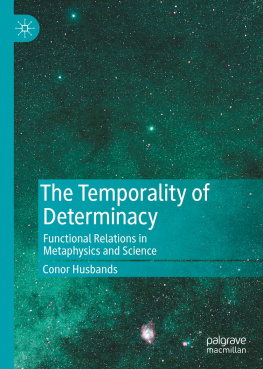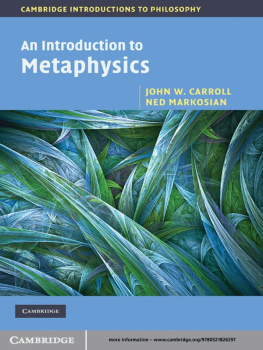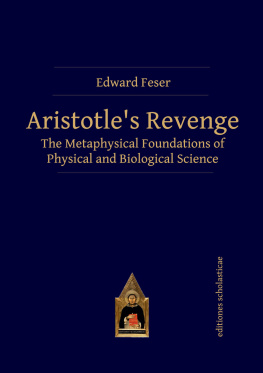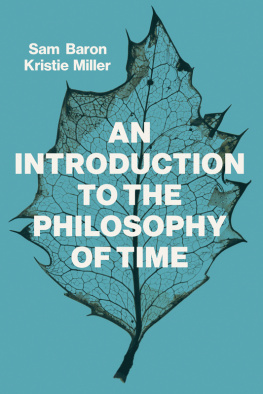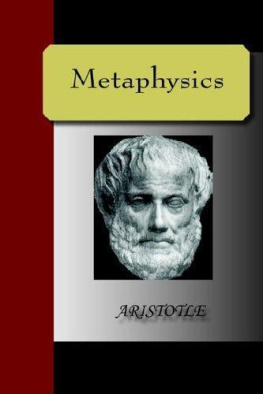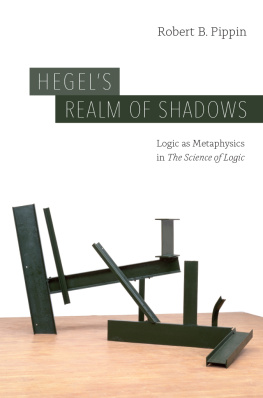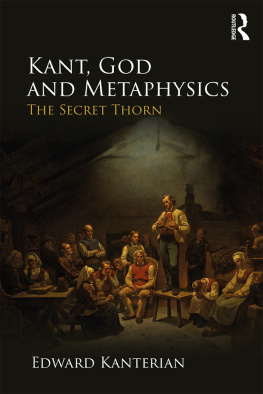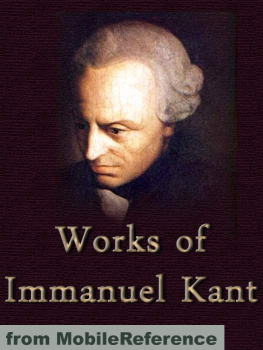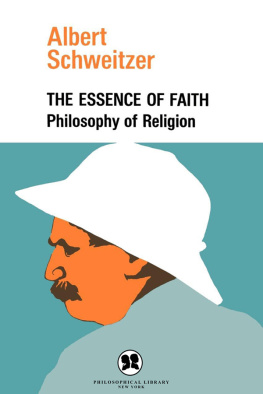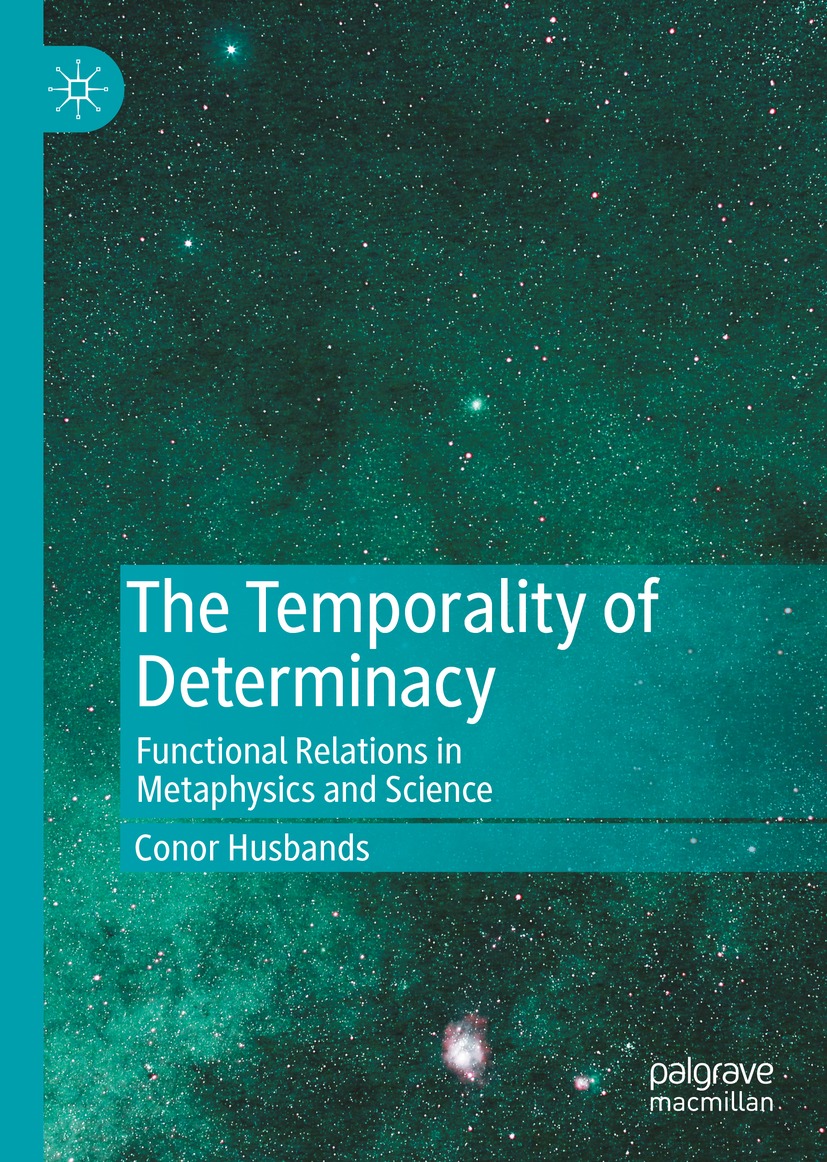Conor Husbands
The Temporality of Determinacy
Functional Relations in Metaphysics and Science

The Palgrave Macmillan logo.
Conor Husbands
London, UK
ISBN 978-3-030-86529-0 e-ISBN 978-3-030-86530-6
https://doi.org/10.1007/978-3-030-86530-6
The Editor(s) (if applicable) and The Author(s), under exclusive license to Springer Nature Switzerland AG 2022
This work is subject to copyright. All rights are solely and exclusively licensed by the Publisher, whether the whole or part of the material is concerned, specifically the rights of translation, reprinting, reuse of illustrations, recitation, broadcasting, reproduction on microfilms or in any other physical way, and transmission or information storage and retrieval, electronic adaptation, computer software, or by similar or dissimilar methodology now known or hereafter developed.
The use of general descriptive names, registered names, trademarks, service marks, etc. in this publication does not imply, even in the absence of a specific statement, that such names are exempt from the relevant protective laws and regulations and therefore free for general use.
The publisher, the authors and the editors are safe to assume that the advice and information in this book are believed to be true and accurate at the date of publication. Neither the publisher nor the authors or the editors give a warranty, expressed or implied, with respect to the material contained herein or for any errors or omissions that may have been made. The publisher remains neutral with regard to jurisdictional claims in published maps and institutional affiliations.
Cover image by Cristbal Alvarado Minic
This Palgrave Macmillan imprint is published by the registered company Springer Nature Switzerland AG
The registered company address is: Gewerbestrasse 11, 6330 Cham, Switzerland
Contents
The Author(s), under exclusive license to Springer Nature Switzerland AG 2022
C. Husbands The Temporality of Determinacy https://doi.org/10.1007/978-3-030-86530-6_1
1. Introduction
The way in which events in the world relate to the rules and laws which govern them has long been a matter of philosophical dogma. Both Ancient and modern thinking has embraced the uniformity and consistency of nature: the world does not fluctuate as if the caprices of a deity, but is orderly, causal, and intelligible to the mind. Prominent scholars have held that this intuitive precept requires exogenous rules and laws, acting on events from outside, quite separate from the systems they describe. Such rules and laws escape the ravages of time which affect these systems. They neither evolve nor change, no matter how profoundly the world metamorphoses: events occur in time, but laws stand outside of time, and the causes and forces which animate the world are the same for any epoch. Thus, some go so far as to label them eternal, as if to mimic Spinozas characterisation of substance. Nature evolves according to laws independent of timeand must, in order to be consistent. The alternative, it is claimed, would plunge the world into chaos, and unintelligibility to the human mind.
This commitment to the time-independence of laws has an important implication. It owes to the fact that laws are frequently taken to confer determinacy on events. If they are free from the dynamics of any given system, the determinacy they impart is atemporal. The subjection of an event to rules and laws is independent of time, and is in no sense a process. Events such as this unfold according to laws which are eternal, not evolving. In turn, if laws of nature are considered to be represented by functionsthe language of modern sciencethe variables they describe are determined once and for all to be as they are at each moment. It is for this reason that modern authors speculate that the time variable t can be expunged from these functions which quantify this evolution over time, and that the truth or falsity of the corresponding laws cannot become such as they will be, once were or are at any time, but always are so. They have no temporal structure.
The main tenets of this line of thought can be condensed into the following statementone operating covertly in a multitude of philosophical debates, in Ancient disputes about time and fate, in Humes skirmish with Kant over the grounds of causality, and in present-day accounts of the foundations of science:
(I)
Laws of nature are absolutely independent of functions of time. (Atemporality Conjecture)
The thesis of this book is the negation of this statement. It is not the case that the laws of nature are absolutely independent of time. Its argument for this conclusion adduces developments in the physical and non-physical sciences, as well as the commitments of certain philosophical schools, which force this atemporality conjecture to be jettisoned, and cast into relief a number of phenomena whose mode of determinationthat is, their subjection to the rules of scientific theorydoes, in fact, display a temporal structure. These phenomena conform to laws which evolve with them, and which, rather than acting from an unworldly eternity, belong also to the systems they make up.
Examples of this kind of time-dependency appear in diverse disciplines, from time-series analysis to international relations, from statistical mechanics to cryptographyall of which are drawn upon in the course of the argument. It is instructive to introduce a few in advance.
In behavioural economics, the bilateral dependency between markets and the expectations of participants in them produces recursive behaviour. The correct price for a given security depends on reciprocal expectations, which are formed and reformed over time.
In the context of thermal physics, particularly statistical mechanics, macroscopic variables are described probabilistically. Ergodic behaviour, an important species of statistical-mechanical behaviour, such as that of mixing and Bernoulli systems in canonical formulations of the theory, exhibit probabilistic irrelevance: events sufficiently separate in time are not only correlated to a weak or decaying degree, but, in certain circumstances, entirely probabilistically independent of one another, so that P(el| ek) = P(el) for a pair of events {ek, el}. This fact is contrary to proponents of the atemporality conjecture, such as Russell, who contend that specifying a law of nature and an event at a given time determines all other events it describes, regardless of their position in time. Here, by contrast, events become determinate, as the system and the laws describing it evolve through time.
Brian Massumis work considers the logic of threats posed by two sides in a military conflict. In the case of pre-emptive military action, this logic converts an external threat into a determinate enemy as a result of the pre-emptive attack. The threat is determined as such after the act which pre-empts it. Thus, the determinacy of the events of the system, such as threats or pre-emptive acts, cannot be secured in advance by a law: they are determined through time. For Massumi, the driving forces behind pre-emptive action are exogenous and, as such, no less temporal than the hostility and destruction which emerges from it.

